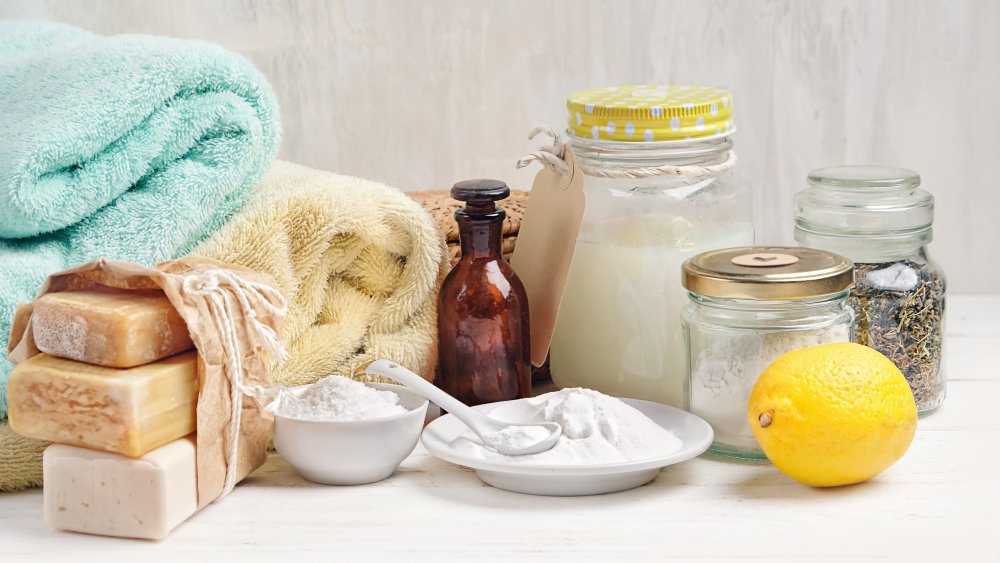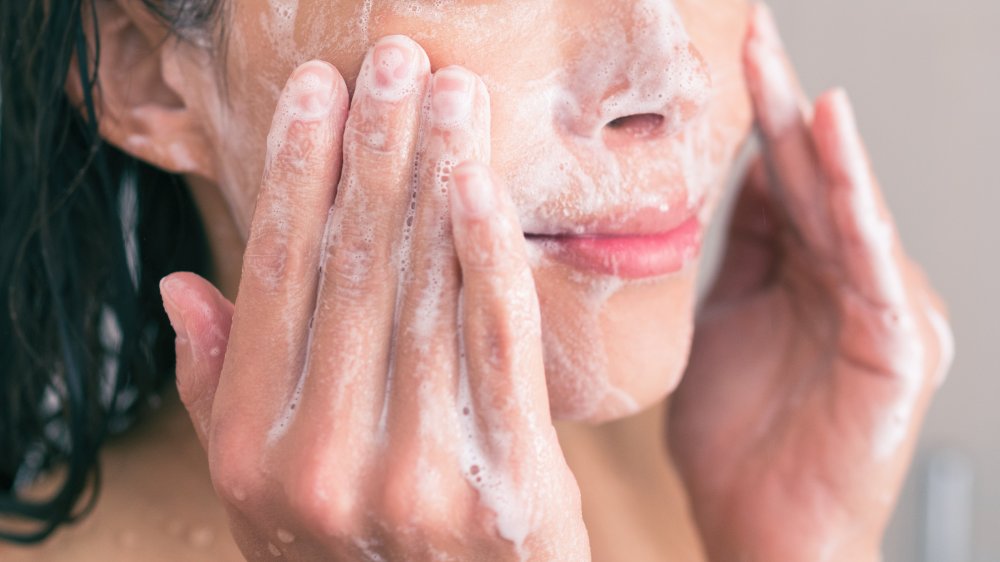Here's How Baking Soda Can Damage Your Skin
Baking soda is a popular ingredient when it comes to hygiene products. You may have it in your toothpaste to help whiten your teeth, and taking baking soda baths is a known and often doctor-recommended remedy for everything from poor circulation to poison ivy to yeast infections (via Healthline). And chances are, if you've looked up ways to make your own natural face wash at home, you've likely come upon a recipe or two that includes baking soda.Usual claims about this ingredient are that it helps to exfoliate and purify the skin. Famous brand Arm & Hammer even suggests making your own baking soda facial to help unclog pores.
But as it turns out, while baking soda may be a wonderful tool for many beauty and hygiene purposes, you probably shouldn't wash your face with it. In fact, doing so could actually cause damage to your skin.
Baking soda can damage your skin's natural barrier
The potential issue with using baking soda on your face stems from its pH. Your skin naturally has a pH level somewhere between 4.5 and 5.5, which means it is mildly acidic. Keeping your skin within this range is important in order to allow it to produce healthy oils that keep it moisturized and protected against pollutants, bacteria, and other irritants (per Medical News Daily). Baking soda, however, has a pH level of 9, meaning it is basic or "alkaline," and can therefore affect the skin's pH level, stripping it of oils it needs and potentially causing some uncomfortable and unwanted side effects like very dry skin, early onset wrinkles, worsening acne, irritation or inflammation, and sensitivity to natural elements like the sun.
"When it comes to your skin, there are many elements to consider," Dr. David Lortscher, board-certified dermatologist and CEO and founder of skincare line Curology told The Providence Journal. He went on to elaborate that "Some people try baking soda as a cost-effective scrub or mask," but warned that "scrubbing your face with a baking soda paste can be harsh and disturb your skin's natural barrier, leading to red, raw and sensitive skin and leaving it susceptible to breakout." So while it's still a great ingredient in baths, you probably want to stick to other washes and masks for the sensitive and delicate skin of your face.

